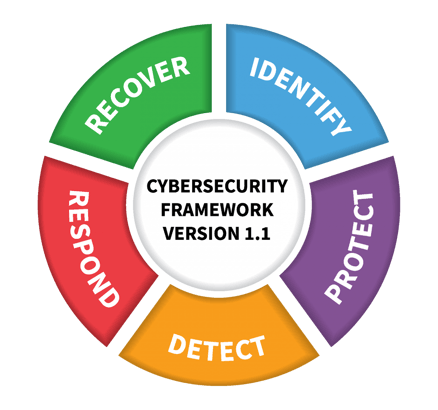Data compliance: find out what you need to know in 2023 with ZyLAB
Data plays a central role in the operations of nearly every industry today. Along with the increase in the volume of corporate data that exists, we’ve seen an increase in the number of laws and regulations protecting individuals’ rights to access and control their personal data.
Between the complexity of this legal and regulatory landscape and the sophistication of some modern cyberattack schemes, data compliance and cybersecurity have evolved into robust industries. For corporate legal teams, understanding what laws and regulations apply to their data and deciding how to satisfy those requirements is crucial to achieving data compliance.
In this post, we’ll start by defining data compliance and some of its components, such as data privacy and data security. We’ll then explore a few different types of data compliance standards and discuss some of the most pressing challenges of data compliance. Finally, we’ll offer five best practices for ensuring data compliance within your organization and explain how modern technology can aid in that regard.
What is compliance?
In the legal context, compliance refers both to an organization’s adherence to applicable laws and regulations and its system for maintaining that adherence. When an organization is out of compliance, it may face an investigation, fines, and even incarceration of its officers, not to mention damage to its reputation. Compliance measures are designed to prevent those consequences by implementing appropriate policies and procedures and taking specific actions.
What is data compliance?
Data compliance encompasses the systems that an organization uses to ensure that it complies with applicable laws, rules, and regulations governing digital information. Data compliance generally encompasses topics such as data security, privacy, and retention. As a result, data compliance involves systems for organizing, storing, and managing data in a way that prevents it from being inadvertently disclosed, compromised, lost, or stolen.
Next, let’s talk about why data compliance matters.
e measures are designed to prevent those consequences by implementing appropriate policies and procedures and taking specific actions.
Why is data compliance important?
Data compliance is important because it’s how an organization prepares and executes a plan to protect both its own sensitive data and the personal data of its customers, prospects, and employees. An effective plan for data compliance helps an organization prevent costly data breaches, avoid legal and regulatory penalties, and preserve its reputation.
You may be wondering whether data compliance is just another name for data security. Let’s look at how these terms compare.
Security vs. Compliance: How is data security related to data compliance?
Data security is the framework an organization uses to protect its digitally stored information from cyberattacks, primarily from the outside. Examples of data security tools include antivirus software, firewalls, multi-factor authentication (MFA), and network security monitoring.
Data security and compliance have some overlap, but there are a few key differences between them.
First and foremost, while each organization can choose the data security tools it uses, third parties such as legislators and regulatory agencies establish the laws and regulations underlying data compliance standards and guidelines. And while data security is a component of data compliance, there’s no guarantee that a particular data security system will satisfy the legal and regulatory requirements that apply to your organization’s data. Alternatively, your organization may choose to build data security systems that are more stringent than what data compliance requires.
Data compliance is also a broader term than data security. While data security primarily concerns attacks such as hacking, data compliance also encompasses practices around data retention such as how long organizations must maintain data and how they must dispose of data after that period.
Another aspect of data compliance that isn’t strictly about data security is data privacy, which we’ll turn to next.
What is data privacy?
Data privacy is an individual’s right to control what happens with their personal information and who has access to it. Data privacy is one of the primary components of data compliance. While data security has been a concern for decades, the protections around data privacy are newer. Data privacy concerns grew out of the dramatic rise in online activity and the ensuing increase in the amount of personal information that corporations collect from individuals as well as the value of that information.
Now that we’ve reviewed some background about data compliance, let’s consider some of the laws and regulations that establish specific data compliance standards.
Types of data compliance standards
Data compliance standards are rules and guidelines that third parties set to safeguard corporate data. Here are five sources of data compliance standards and the basic requirements of each.
What is the Health Insurance Portability and Accountability Act (HIPAA)?
HIPAA is a U.S. law that protects the sensitive health information of patients and health plan members. Under HIPAA, an individual’s protected health information (PHI) cannot be disclosed without the individual’s knowledge or consent. HIPAA compliance requires healthcare organizations to, among other things, protect patient privacy, shield patient data from healthcare fraud, and ensure that patients will be notified of security breaches involving their data.
What is the General Data Protection Regulation (GDPR)?
The EU’s GDPR sets data privacy standards that apply to any organization that targets or collects data about EU residents. GDPR compliance involves:
- implementation of “appropriate technical and organizational measures” to protect personal data;
- limitations on data processing;
- strict rules around individual consent to data processing;
- the requirement for organizations to appoint a “Data Protection Officer (DPO)” under certain conditions; and
- measures to grant individual rights to data privacy, such as the right to access data or request its deletion.
What is the National Institute of Standards & Technology (NIST)?
NIST is a section of the U.S. Department of Commerce that, among other functions, creates and promotes voluntary cybersecurity standards and best practices, such as the NIST Cybersecurity Framework.
The Framework is voluntary and outlines five main functions that organizations should perform in pursuit of data security: (1) identify cybersecurity risks; (2) protect data from those risks; (3) detect cybersecurity events when they occur; (4) respond appropriately to such incidents; and (5) recover after any incidents that occur.

Source: NIST, “Framework Version 1.1.” https://www.nist.gov/cyberframework.
Compliance with the NIST Framework can help organizations plan for and address cybersecurity threats while keeping damage to a minimum.
What is the California Consumer Privacy Act (CCPA)?
While the U.S. does not yet have a federal data privacy law, some states have established laws governing data privacy. The CCPA, for example, gives California consumers the right to:
- know what data organizations have about them,
- request the deletion of their personal data, and
- opt out from the collection and use of their personal data.
The CCPA also provides that businesses cannot discriminate against consumers who exercise their rights under the CCPA.
The CCPA applies to businesses that operate in California and meet certain thresholds. CCPA compliance requires that businesses provide notice of their data privacy practices and establish systems to grant consumers the established rights.
What is SOX Compliance?
SOX (Sarbanes-Oxley Act) is a financial reporting act that followed in the wake of the Enron accounting scandal. SOX compliance requires organizations to issue real-time internal financial reports and alerts, ensure the security of financial data, and retain certain records for specified lengths of time.
Given the wide variety of data compliance standards that exist, it’s no wonder that data compliance can be challenging. But there are other factors at play too.
Additional factors that make data compliance challenging
In addition to the proliferation of laws, rules, and regulations concerning data management, organizations must also grapple with several other factors that raise the complexity of data compliance. Those factors include:
- the ever-increasing volume of data that businesses generate, collect, and manage;
- the expansion of the remote workforce and its demands for offsite access to business data; and
- the growing sophistication of cybersecurity threats.
In light of these challenges, what can your organization do to ensure data compliance? We’ve collected five best practices to help you ensure that your organization manages its data appropriately.
5 best practices to ensure data compliance within your organization
Data compliance is more than just possible—it is highly achievable. Although corporate data itself can be complex, many of the mechanisms of data compliance are quite straightforward. Here are five best practices you can set in motion now.
- Understand legal and regulatory requirements.
You can’t effectively plan to comply with requirements that you don’t know about. Stay up to date on the laws, rules, and regulations that apply to your industry, considering every jurisdiction that you operate in or have customers in. Keep close tabs on the requirements that are relevant to your organization and make sure you understand what your organization needs to do to meet those requirements.
- Provide adequate staff training.
In the same vein, you can’t expect that your staff will understand everything about data compliance unless you explain it to them. Take the time to train and periodically re-train staff on the applicable legal and regulatory requirements for data compliance. Pay particular attention to training for data breaches and cybersecurity risks, as hackers generally gain access to data by exploiting people.
- Document your data practices.
An organization’s compliance is only ever as good as its proof of that compliance. To ensure that you will be able to demonstrate how you protected your organization’s data, carefully and thoroughly document your data management practices. When new regulatory requirements arise, be sure to update your policies (and retrain your staff).
- Vet any vendors who have access to your data.
When you work with vendors and grant them access to your organization’s data, you are responsible for ensuring that they also comply with the laws, rules, and regulations that your organization is subject to. Be sure that you are carefully vetting the data security and protection measures of each vendor who is allowed access to your data.
- Invest in technology.
Modern technology is a critical tool in establishing organization-wide data compliance. Technology can help you quickly and cost-efficiently audit your data stores, uncover potential risks to your organization’s data, and ensure compliance.
Let’s take a closer look at the role of technology in data compliance.
How modern technology can help ensure data compliance across your organization
Technology can assist legal teams with data compliance by making it faster and easier to manage sensitive data and assess risk.
ZyLAB specializes in creating solutions that help legal teams manage data more safely and efficiently. For example, ZyLAB ONE is an end-to-end eDiscovery platform that allows you to search, review, and analyze large volumes of data in place, even when it is stored across multiple sources.
What does eDiscovery technology have to do with data compliance? Plenty. ZyLAB ONE can assist with tasks such as:
- controlling document access by updating roles and permissions,
- performing manual and auto redaction of sensitive information,
- culling data that your organization no longer needs to retain, and
- uncovering risks to sensitive information.
From that point, you can more readily implement safeguards, address potential risks, and demonstrate your legally defensible data management practices to regulatory agencies.
You can efficiently achieve data compliance
Modern legal technology helps legal teams ensure data compliance across their organizations more efficiently than ever.
By using the right tools, you can protect the sensitive data that your organization manages, avoid fines and other penalties, and show both regulatory agencies and the public that you deserve their trust.
For more information about ZyLAB and ZyLAB ONE, get in touch with us.



